BANGKOK: World leaders including Tony Abbott and Barack Obama travel to Burma (Myanmar) this week amid concern the country is backsliding on sectarian violence, media freedom and democracy two years after Western nations started lifting economic sanctions.
Burma's government, made up mostly of former generals, has refused to amend the country's constitution to allow popular opposition leader Aung San Suu Kyi to run in elections scheduled for next year.
As Burma hosts the East Asia Summit beginning on Wednesday, the country faces criticism of increased attacks against ethnic minorities in Kachin, Karen and Shan states and the release of a plan for western Rakhine state that would render hundreds of thousands of minority Muslim Rohingya either second-class citizens or permanently stateless, resulting in their incarceration or deportation.
On the eve of the summit, US Secretary of State John Kerry specifically raised with President Thein Sein concern over sectarian violence in Rakhine, including access to humanitarian aid for more than 140,000 displaced people, most of them Rohingya.
But Mr Kerry rejected a harsher stance towards Burma that was urged recently in a letter signed by 72 members of the US House of Representatives from both sides of the aisle.
''This is hard work,'' Mr Kerry told journalists after a diplomatic forum in the capital Naypyitaw. ''But you don't just achieve results by the consequence of looking at somebody and ordering them to do it, or telling them to do it, or else.''
Also speaking ahead of the leaders' summit, Ms Suu Kyi warned Burma's reform process is stalling and made it clear that she believes countries like the US have been too optimistic, saying she would challenge ''those who talk so much about the reform process'' to show her what significant steps toward democratisation have been taken in the last two years.
In 2012 Western nations hailed reforms sweeping Burma after a brutal military regime had stepped down in favor of a nominally civilian government run by former soldiers.
Political prisoners were released, the media was unshackled and freedoms expanded. Western countries led by the US raced to normalise ties with the new Burma, as Australia boosted its aid program to more than $50 million a year.
But diplomats and other observers in Burma have being increasing concerned recently over a stalling of the country's transition to democracy and efforts by the military to preserve its wealth and power.
One journalist has been killed by the military and others jailed and sued for reporting on military-linked issues.
A celebrated peace process with armed ethnic groups has stalled while ethnic and religious-based violence has gripped parts of the country.
The government has left unchanged a constitution that reserves 25 percent of parliament's seats for the military.
''We have real concerns,'' US National Security Adviser Susan Rice told journalists ahead of Mr Obama's trip to China, Myanmar and Australia.
She said ''missteps have been made in the course of this transition''.
Mr Obama is due to meet Ms Suu Kyi, a Nobel laureate who has come under criticism herself for failing to speak up for the Rohingya, named by the United Nations as among the world's most persecuted people.
Ms Suu Kyi has signalled she will tell Mr Obama to take a harder line with her government.
Fairfax Media
Burma's government, made up mostly of former generals, has refused to amend the country's constitution to allow popular opposition leader Aung San Suu Kyi to run in elections scheduled for next year.
As Burma hosts the East Asia Summit beginning on Wednesday, the country faces criticism of increased attacks against ethnic minorities in Kachin, Karen and Shan states and the release of a plan for western Rakhine state that would render hundreds of thousands of minority Muslim Rohingya either second-class citizens or permanently stateless, resulting in their incarceration or deportation.
On the eve of the summit, US Secretary of State John Kerry specifically raised with President Thein Sein concern over sectarian violence in Rakhine, including access to humanitarian aid for more than 140,000 displaced people, most of them Rohingya.
But Mr Kerry rejected a harsher stance towards Burma that was urged recently in a letter signed by 72 members of the US House of Representatives from both sides of the aisle.
''This is hard work,'' Mr Kerry told journalists after a diplomatic forum in the capital Naypyitaw. ''But you don't just achieve results by the consequence of looking at somebody and ordering them to do it, or telling them to do it, or else.''
Also speaking ahead of the leaders' summit, Ms Suu Kyi warned Burma's reform process is stalling and made it clear that she believes countries like the US have been too optimistic, saying she would challenge ''those who talk so much about the reform process'' to show her what significant steps toward democratisation have been taken in the last two years.
In 2012 Western nations hailed reforms sweeping Burma after a brutal military regime had stepped down in favor of a nominally civilian government run by former soldiers.
Political prisoners were released, the media was unshackled and freedoms expanded. Western countries led by the US raced to normalise ties with the new Burma, as Australia boosted its aid program to more than $50 million a year.
But diplomats and other observers in Burma have being increasing concerned recently over a stalling of the country's transition to democracy and efforts by the military to preserve its wealth and power.
One journalist has been killed by the military and others jailed and sued for reporting on military-linked issues.
A celebrated peace process with armed ethnic groups has stalled while ethnic and religious-based violence has gripped parts of the country.
The government has left unchanged a constitution that reserves 25 percent of parliament's seats for the military.
''We have real concerns,'' US National Security Adviser Susan Rice told journalists ahead of Mr Obama's trip to China, Myanmar and Australia.
She said ''missteps have been made in the course of this transition''.
Mr Obama is due to meet Ms Suu Kyi, a Nobel laureate who has come under criticism herself for failing to speak up for the Rohingya, named by the United Nations as among the world's most persecuted people.
Ms Suu Kyi has signalled she will tell Mr Obama to take a harder line with her government.
Fairfax Media

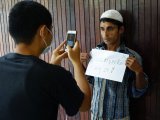
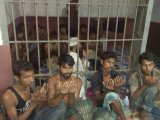

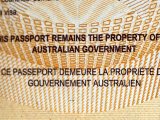
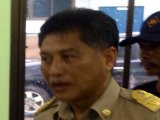
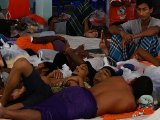


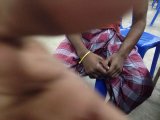
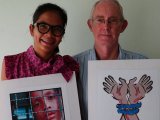
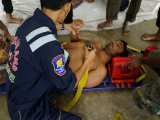
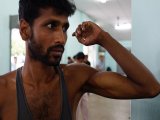



I sometimes feel that politicians only know what their minions chose to tell them & don't have any grasp with the realities of life in their protected world.
The old British comedy 'Yes Minister' was a good illustration of that.
Posted by Logic on November 10, 2014 06:43